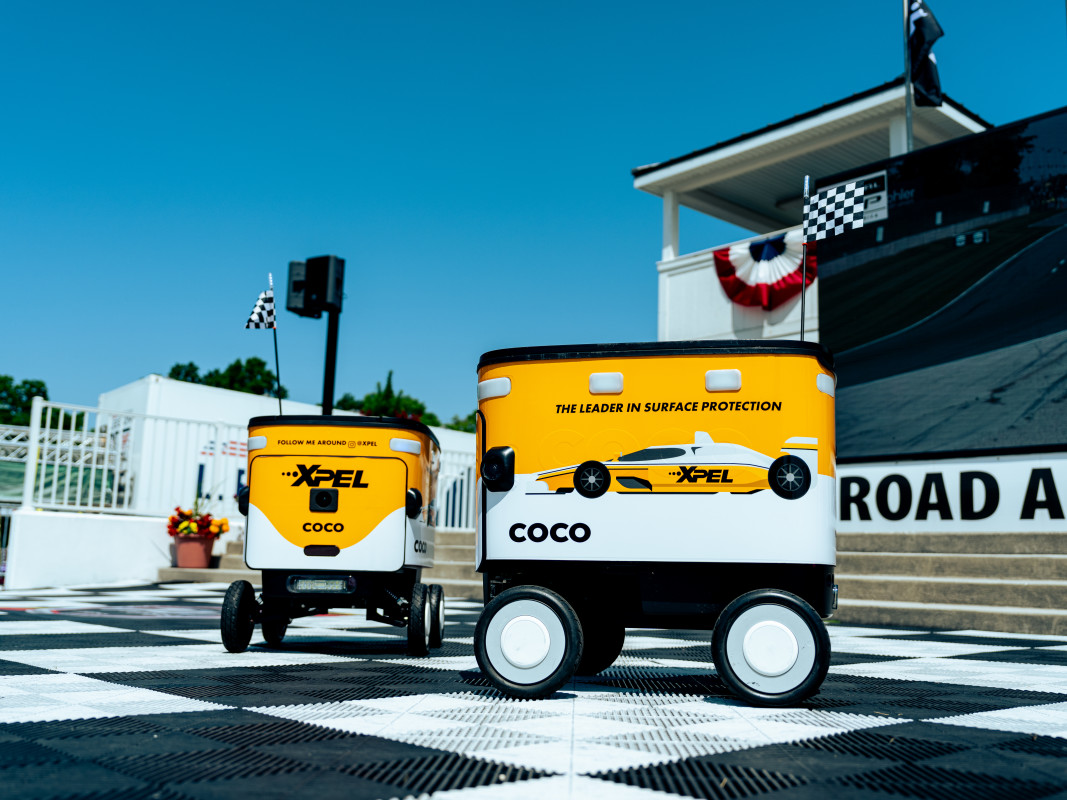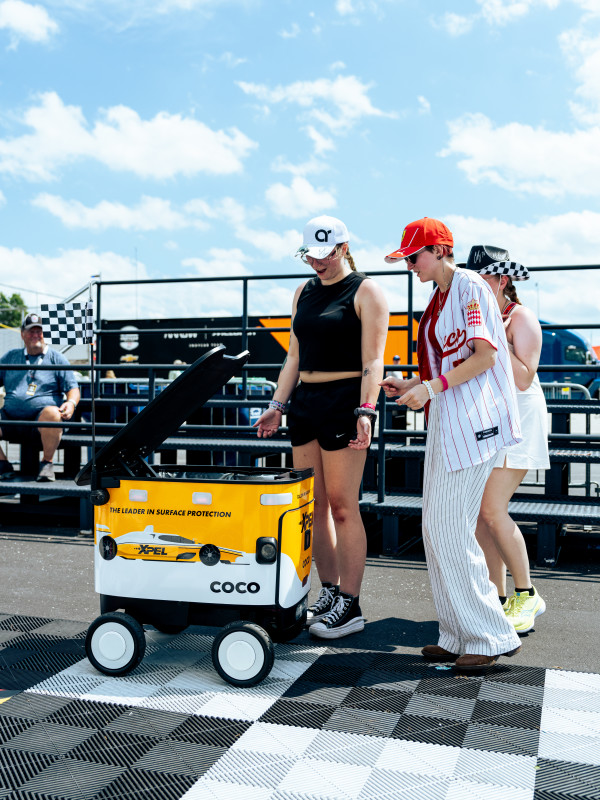Self-driving tech makes an appearance at the XPEL Grand Prix
XPEL, a global leader in paint protection film, window tint, and ceramic coating, is appearing at this weekend’s IndyCar race at Road America beyond its event sponsorship. The surface protection company’s solutions primarily serve the automotive industry, but they’ve also partnered with Coco Robotics, which uses autonomous delivery robots called robocouriers to deliver restaurant and convenience items around the clock in all weather across LA, Chicago, and Miami.
To highlight the partnership, the companies have brought a couple of XPEL-protected Coco robots in Scott McLaughlin’s XPEL IndyCar livery to the XPEL Grand Prix IndyCar race at Road America this weekend. The Coco robocouriers will interact with fans and deliver XPEL giveaways. IndyCar Series driver Scott McLaughlin has pre-recorded several lines that the Coco robocouriers or Coco robots will play when making deliveries.

Coco Robotics
How Coco robots function at Road America and beyond
In the spirit of grand prix weekend, Coco robots were filmed racing each other from the track’s finish line, while another clip showed an autonomous courier pulling up to attendees and popping its top to reveal complimentary merchandise like sunglasses, foam racing helmets, and hats. According to the manufacturer, a single parking space can fit 20 Coco robots, and each unit has 90 liters of storage space with a weatherproof compartment, enough to carry four full grocery bags or six XL pizzas.
On sidewalks, Cocos travel at walking speeds up to 5 mph, and in select markets (or the Road America race track), they can travel up to 15 mph using bike lanes and roads as needed. Each Coco robot can move up to 20.5 miles per charge in extreme heat or cold, weighs 100 lbs, and links with remote human operators for optimal safety. The delivery solution’s AI self-driving tech combines front, rear, left, and right cameras to register visual details like signs and lane markings, while LiDAR (Light Detection and Ranging) provides accurate depth sensing. This combination creates a 3D view of an environment for full 360-degree perception.
While XPEL didn’t specify the exact coatings used on Coco robots at Road America, XPEL’s primary automotive products are protection film, window film, and ceramic coating. Coco robots are windowless, so XPEL’s automotive protection film would help maintain the self-driving couriers’ high-impact areas, while ceramic coating protects against elements like UV ray exposure and road grime during race weekend.

Coco Robotics
Final thoughts
From Tesla’s upcoming robotaxi launch to autonomous robot couriers at race events, self-driving tech is becoming increasingly prevalent, and XPEL’s partnership with Coco Robots shows how these mini vehicles benefit from products like protection film and ceramic coating, similar to traditional cars. Additionally, Coco Robotics has designed its autonomous delivery unit to function in extremely high and low temperatures, reflecting how self-driving tech is expanding from states like California into environments like Chicago with harsher weather. Last week, Coco Robotics announced it raised $80 million for manufacturing its last-mile delivery robots from a mix of undisclosed funding events spanning from 2021 to 2025, according to TechCrunch.